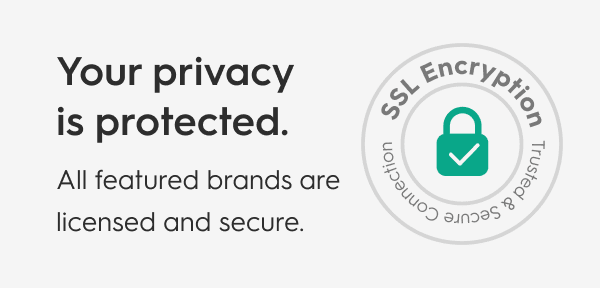323,990 users
chose an account with BestMoney this month

Editor's Picks
What to Consider When Choosing a Free Business Checking Account
Before you sign up for a free business checking account, it’s important to think carefully about what financial services your business needs. Business checking accounts differ widely, particularly when it comes to transaction limits, fees, interest, and balance requirements.
1. Transaction Limits
Many banks place limits on both deposits and withdrawals to your business checking account. For example, you may only be allowed to deposit a certain amount of cash into your account each month for free. If you exceed this cash deposit limit, you could face hefty fees that eat into your business’s revenue.
Just as frequently, banks place limits on the number of transactions your business can make for free. For example, you may only be allowed to make a certain number of check payments, electronic transfers, debit card payments, or cash withdrawals each month. If you exceed that, expect to pay more fees.
2. Fees
Fees are one of the most important things to look at when choosing a business checking account. Banks often advertise business checking accounts as “free,” but in reality the account is only free under certain - often very restrictive - conditions.
- Monthly Account Fees
To start, check whether a bank will charge a monthly account fee. This is a fee that you’ll pay every month, no matter how often you make transactions from your account. Small monthly fees may be worthwhile if the bank eliminates other fees, but in general it’s a good idea to stick with business checking accounts that come with $0 monthly charges.
You also need to watch out for “maintenance” fees. These are often listed separately from the primary monthly fee, and they can be as high as $50 per month at some banks. If a bank you like offers an account with a maintenance fee, ask them to waive it. If they won’t, you should reconsider whether that business checking account is worth it.
- Transaction Fees
For banks that offer “free” business checking accounts, transaction fees are the most common way to make money off of your business. Typically, business checking accounts come with anywhere between 200 and 500 transactions per month. While that sounds like a lot - and it may be for some businesses - it’s easy to run over that limit towards the end of the month if your business is processing dozens of transactions per day.
Transaction fees are often a flat fee per payment over your limit. So, for example, you might be charged $0.50 for every excess debit card transaction. That’s not much if you’re placing a supply order worth thousands of dollars, but it can be as much as a 25% surcharge if you’re using your business debit card to buy a $2 cup of coffee.
3. Interest
Another important factor that differs between banks is whether they offer interest on cash inside your business checking account. With interest rates low for the foreseeable future, this might not be a huge deal.
Still, if you have a $100,000 balance in your business checking account, earning interest at even a modest 0.1% APY adds up to an extra $100 per year. Although that’s not much, it’s enough to throw a small office party for your employees.
So, be sure to check whether a bank offers interest payments to business account holders and how the interest rates compare to competitors.
4. Balance Requirements
Many banks require that you keep a minimum balance inside your business checking account. If you fall below this minimum balance, you could be subject to more fees.
On the other hand, some banks reward you rather than punish you for keeping a higher balance with them. For example, if you have more than a threshold amount of cash in your business checking account, you may qualify for higher transaction limits or higher interest rates.
This reward structure can make some business checking accounts that initially seem too expensive much more appealing.
5. Physical vs. Digital Banking
Another thing to consider when choosing a bank for your business checking account is whether it has a physical footprint or whether it’s an online-only institution. Digital banks can often offer better account terms and higher interest rates since they have less overhead than traditional banks.
On the other hand, if you need access to physical infrastructure like ATMs or want the ability to talk to someone at your bank in person, then a physical bank might be better for your business.
Whichever option you prefer, take a look to see what other services your bank offers. If your business needs a loan down the road, the bank that runs your business checking account is a good place to start. Plus, banks frequently offer better terms to existing customers.
If you choose a small local bank or an online-only checking account, just keep in mind that you might have less financial flexibility in the future.
Which account is right for you?
| Bank | Monthly Fees | Earns Interest | Explore |
|---|---|---|---|
 | None | Yes | Visit Site |
 | None for Standard account | Yes, on paid accounts | |
 | None | No |
Explore Online Business Checking Accounts
1. Relay

Relay is an online banking platform for small businesses, accountants, and bookkeepers to automate their bill pay and manage their cash flow and operating expenses. It charges no fees and makes it easy to send and receive ACH transfers, checks, or wires. You can sync transaction data directly in QuickBooks or Xero, and set up role-based permissions so there’s no need to share login information between staff.
| Pros | Cons |
|---|---|
|
|
2. Lili
Lili Banking is ideal for small businesses looking to get a better hold on their finances. Lili makes it easy to set money aside for taxes, organize expenses, and even get early access to direct deposits. The Lili Smart account offers advanced expense management tools and a unlimited invoices and payments. Lili's Standard account is completely free, and their Smart account is just $35 per month.
| Pros | Cons |
|---|---|
|
|
3. Mercury
Mercury is a banking* services platform that offers high-tech business checking and savings accounts for startups and growing companies. Mercury charges zero account fees and doesn’t require a minimum deposit. You can request physical debit cards or create your own virtual cards for employees. Mercury also offers an API so you can integrate your bank account with the rest of your business software.
| Pros | Cons |
|---|---|
|
|
Disclaimers
Lili:
¹ Lili is a financial technology company, not a bank. Banking services provided by Sunrise Banks N.A., Member FDIC.
² The Lili Visa® Debit Card is issued by Sunrise Banks N.A., Member FDIC, pursuant to a license from Visa U.S.A. Inc.
³ The Annual Percentage Yield (“APY”) for the Lili Savings Account is variable and may change at any time. The disclosed APY is effective as of January 13, 2026. Must have at least $0.01 in savings to earn interest. 2.25% APY applies to balances of up to and including $500,000. 4.00% APY applies to balances over $500,000 and up to and including $1,000,000. Any portions of a balance over $1,000,000 will not earn interest or have a yield. Available to Lili plans.
Bluevine:
¹ No limit on numbers of transactions, However, all accounts are subject to the aggregated monthly deposit and withdrawal amount limits of the Account Agreement.
² To earn the $500 bonus, customers must apply for a Bluevine Business Checking account anytime between now and 1/31/2026 using the referral code above. After opening the account, customers must add funds within 30 days, then meet at least one of the following eligibility requirements every 30 days for the next 90 days from account funding:
• Deposit at least $5,000 from eligible merchant services to your Bluevine account
• Make at least $5,000 of outbound payroll payments from your Bluevine account using eligible payroll providers
• Spend at least $2,000 with your Bluevine Business Debit Mastercard® and/or Bluevine Business Cashback Mastercard®
U.S. Bank:
1. Promo code Q1AFL26 MUST be used when opening a U.S. Bank Business Essentials® or Platinum Business
Checking account. Limit of one bonus per business. A $100 minimum deposit is required to open one of the
referenced accounts.
To earn a business checking bonus, open a qualifying U.S. Bank business checking account between 1/15/2026 and 3/31/2026. Make the required deposit(s) in new money within 30 days of account opening, maintain the same required daily balance through the 60th day, and complete 6 qualifying transactions based on posted date within 60 days of account opening.
Business Essentials: $400 bonus with $5,000 new money deposits, daily balance, and 6 qualifying transactions.
Platinum Business Checking: $1,200 bonus with $25,000 new money deposits, daily balance, and 6 qualifying transactions.
Qualifying transactions include debit card purchases, ACH and wire credits or debits, Zelle credits or debits, U.S. Bank Mobile Check Deposit, electronic or paper checks, Bill Pay (excluding payments made by credit card), and payment received via U.S. Bank Payment Solutions. Other transactions, such as person-to-person payments, credit card transfers, or transfers between U.S. Bank accounts, are not eligible.
New money is defined as funds from outside U.S. Bank and cannot be transferred from another U.S. Bank product or a U.S. Bank Affiliate. For accounts opened on non-business days, weekends or federal holidays, the open date is considered the next business day. Account fees may reduce the required daily balance during the qualifying period.
Bonus will be deposited into your new eligible U.S. Bank business checking account within 30 days after the month-end in which all offer requirements are met, provided the account remains open with a positive available balance.
Offer may not be combined with other business checking bonus offers. Existing businesses with a business checking account or had one closed within the past 12 months, do not qualify.
All regular account-opening procedures apply. For full checking account pricing, terms and policies, refer to your Business Pricing Information, Business Essentials Pricing Information, and YDAA disclosure. These documents are available at any U.S. Bank branch or by calling 800.872.2657.
Bonus will be reported as interest earned on IRS Form 1099-INT and recipient is responsible for any applicable taxes. Current U.S. Bank employees are not eligible. U.S. Bank reserves the right to withdraw this offer at any time without notice.
2. Monthly Maintenance Fee Waiver Options: Platinum Business Checking: U.S. Bank Payment Solutions Merchant Banking OR $25,000 average collected balance, OR $75,000 combined average collected business deposits and outstanding business credit balances.
3. Digital transactions include electronic deposits, electronic withdrawals, ATM transactions, Elavon payment processing credits and chargebacks, electronic transfers, ACH, debit card purchases. Certain transactions may have additional service fees. Refer to U.S. Bank Business Essentials® Pricing Information or contact your Business Banker for complete pricing information.
4. One free mobile card reader is included and is only available for customers applying for a new U.S. Bank Business Essentials® account through the online application. Card reader cannot be redeemed for any other hardware purchase or account credit. Additional card readers available for a fee.
Member FDIC
Mercury:
*Mercury is a fintech company, not an FDIC-insured bank. Banking services provided through Choice Financial Group and Column N.A., Members FDIC. The IO Card is issued by Patriot Bank, Member FDIC, pursuant to a license from Mastercard®.
The IO Card is issued by Patriot Bank, Member FDIC, pursuant to a license from Mastercard®. To receive cash back, your Mercury accounts must be open and in good standing, meaning they cannot be suspended, restricted, past due, or otherwise in default.
Mercury Treasury is offered by Mercury Advisory, LLC, an SEC-registered investment adviser. This communication does not constitute an offer to sell or the solicitation of any offer to purchase any security. Funds in Mercury Treasury are subject to investment risks, including possible loss of the principal invested, and past performance is not indicative of future results. Please see full disclosures at mercury.com/treasury Mercury Advisory is a wholly-owned subsidiary of Mercury Technologies.
Mercury Treasury is not insured by the FDIC. Funds in Mercury Treasury are not deposits or other obligations of Choice Financial Group or Column N.A., and are not guaranteed by Choice Financial Group or Column N.A.
American Express:
¹ Qualifying activities include:
- Deposit a total of $5,000 or more in eligible deposits within 30 days of opening your first account, AND
Eligible deposits are any deposits except deposits using our Redeem for Deposits feature, deposits from interest payments, and deposits from any other American Express Business Checking accounts.
- Maintain an average account balance of $5,000 for the next 60 days,
AND
- Make 5 or more qualifying transactions within 60 days of opening your account
Qualifying transactions are mobile deposits, check deposits by mail, and electronic/online transactions including ACH, Wire, and Bill Payments. Business Debit Card transactions and deposits using our Redeem for Deposits feature are not qualifying transactions.
Membership Rewards® Program - Redeem for Deposits Terms:
You may redeem Membership Rewards® points for deposits into your American Express® Business Checking Account at the standard rate of 1000 points for an $8 deposit. If you have a Business Platinum Card® and an American Express Business Checking Account linked to the same Membership Rewards Account, you can redeem points for a deposit at a rate of 1000 points for $10 for up to 1,000,000 points per calendar year, after which you may continue to redeem points at the standard rate. There is no minimum number of points needed to use Redeem for Deposits. American Express will deduct the number of points you select from your Membership Rewards Account and deposit a corresponding dollar amount into your checking account. Generally, deposits will post to your account within 48 hours of redemption. For more information, visit www.membershiprewards.com/terms.
American Express is currently currently accepting applications from eligible U.S. businesses. Not all applicants will be approved for a Business Checking account. Select industries or businesses engaged in certain activities are currently ineligible, such as money service businesses, cryptocurrency, internet gambling businesses, and marijuana related businesses.
Membership Rewards® points can be converted into deposits directly into your American Express® Business Checking account.
- For new members: Points you earn, including the Welcome Bonus and from making Business Debit Card purchases, can be converted into deposits made directly into your Business Checking account. Terms apply.
- For Membership Rewards-enrolled Card holders: You can choose to convert points into deposits directly into your Business Checking account or use them the same way you always have – for travel, gift cards, and more. Terms apply.
- *Participating partners and available rewards are subject to change without notice.
Found:
Found is a financial technology company, not a bank. Banking services are provided by Lead Bank, Member FDIC. The funds in your account are FDIC-insured up to $250,000 per depositor for each account ownership category. FDIC insurance only covers the failure of an FDIC-insured depository institution.
*Customers who have signed up for an account after November 1, 2025 will earn a bonus equal to 2.0% Annual Percentage Yield (APY) on the portion of their account balance up to $20,000 for a given month only if they spend $5,000 in qualifying debit card transactions during the month and satisfy other eligibility requirements as described in the Card Spend Bonus Terms. No bonus will be earned on the portion of account balances over $20,000.
**Found's core features are free. Found also offers two optional paid products, Found Plus for $19.99 / month or $149.99 / year or Found Pro for $80 / month or $720 / year. Read Found Fee Schedule.
Relay:
1. Relay is a financial technology company and is not a bank. Banking services provided by Thread Bank, Member FDIC. The Relay Visa Debit Card is issued by Thread Bank, Member FDIC, pursuant to a license from Visa U.S.A. Inc. and may be used anywhere Visa cards are accepted. The Relay Visa Credit Card is issued by Thread Bank, Member FDIC, pursuant to a license from Visa U.S.A. Inc and may be used everywhere Visa cards are accepted. FDIC insurance is available for funds on deposit through Thread Bank, Member FDIC. Pass-through insurance coverage is subject to conditions.
2. The interest rates and annual percentage yield on your account are accurate as of 09/18/2025 and are variable and subject to change based on the target range of the Federal Funds rate. Fees May Reduce Earnings.
For customers with accounts opened on or after 4/29/25 or existing customers that have been migrated to Relay’s subscription plans, APY will vary between 0.97% and 2.83% depending on the subscription plan you are subscribed to:
- When you are subscribed to the Starter Plan, the interest rate on your savings accounts is 0.97% with an APY of 0.97%
- When you are subscribed to the Grow Plan, the interest rate on your savings accounts is 1.63% with an APY of 1.65%.
- When you are subscribed to the Scale Plan, the interest rate on your savings accounts is 2.82% with an APY of 2.86%.
Grasshopper:
Innovator Business Checking Annual Percentage Yield (APY) is accurate as of 1/1/2025. The minimum amount to open an account is $100.00. Rate tiers are as follows: 1.00% APY applies to balances of $0.01—$24,999.99. 1.80% APY applies to balances of $25,000-$250,000.00. 1.00 APY applies to balances of $250,000.01 and above. Rates may change after the account is opened. Fees may reduce earnings. National average interest rate for interest checking is 0.07% APY – source: www.fdic.gov.
Innovator Money Marketing Savings Annual Percentage Yield (APY) is accurate as of 1/2/2025. The minimum amount to open an account is $100.00. Rate tiers are as follows: 1.80% APY applies to balances of $0.01—$24,999.99. 3.55% APY applies to balances of $25,000 and up. Rates may change after the account is opened. Fees may reduce earnings.












